
CHAPTER 1
Laying Plans
This is the only possible meaning of , which M. Amiot and Capt. Calthrop wrongly translate Fondements de I'art militaire and First principles respectively. Cao Gong says it refers to the deliberations in the temple selected by the general for his temporary use, or as we should say, in his tent. See 26.
The old text of the Tong Dian has , etc. Later editors have inserted after , and before . The former correction is perhaps superfluous, but the latter seems necessary in order to make sense, and is supported by the accepted reading in 12, where the same words recur. I am inclined to think, however, that the whole sentence from to  is an interpolation and has no business here at all. If it be retained, Wang Xi must be right in saying that denotes the seven considerations" in ( 13. are the circumstances or conditions likely to bring about victory or defeat. The antecedent of the first is ; of the second, . contains the idea of comparison with the enemy," which cannot well be brought out here, but will appear in 12. Altogether, difficult though it is, the passage is not so hopelessly corrupt as to justify Capt. Calthrop in burking it entirely.
is an interpolation and has no business here at all. If it be retained, Wang Xi must be right in saying that denotes the seven considerations" in ( 13. are the circumstances or conditions likely to bring about victory or defeat. The antecedent of the first is ; of the second, . contains the idea of comparison with the enemy," which cannot well be brought out here, but will appear in 12. Altogether, difficult though it is, the passage is not so hopelessly corrupt as to justify Capt. Calthrop in burking it entirely.
It appears from what follows that Sun Tz means by a principle of harmony, not unlike the Tao of Laozi in its moral aspect. One might be tempted to render it by morale, were it not considered as an attribute of the ruler in 13.
The original text omits , inserts an after each  , and omits after . Capt. Calthrop translates: "If the ruling authority be upright, the people are united"-a very pretty sentiment, but wholly out of place in what purports to be a translation of Sun Tz.
, and omits after . Capt. Calthrop translates: "If the ruling authority be upright, the people are united"-a very pretty sentiment, but wholly out of place in what purports to be a translation of Sun Tz.
The commentators, I think, make an unnecessary mystery of . Thus Meng Shi defines the words as "the hard and the soft, waxing and waning, / which does not help us much. Wang Xi, however, may be right in saying that what is meant is the general economy of Heaven including the five elements, the four seasons, wind and clouds, and other phenomena.
(omitted by Capt. Calthrop) may have been included here because the safety of an army depends largely on its quickness to turn these geographical features to account.
The five cardinal virtues of the Chinese are (1) humanity or benevolence; (2) uprightness of mind; (3) self-respect, self-control, or proper feeling;" (4) wisdom; (5) sincerity or good faith. Here and are put before and the two military virtues of "courage" and "strictness" substituted for and .
The Chinese of this sentence is so concise as to be practically unintelligible without commentary. I have followed the interpretation of Cao Gong, who joins and again . Others take each of the six predicates separately. has the somewhat uncommon sense of cohort or division of an army. Capt. Calthrop translates: "Partition and ordering of troops which only covers .
The Yu Lan has an interpolated before . It is obvious, however, that the just enumerated cannot be described as . Capt. Calthrop, forced to give some rendering of the words which he had omitted in 3, shows himself decidedly hazy: Further, with regard to these and the following seven matters, the condition of the enemy must be compared with our own." He does not appear to see that the seven queries or considerations that follow arise directly out of the Five heads, instead of being supplementary to them.
I.e., is in harmony with his subjects. Cf. 5.
See 7, 8.
Du Mu alludes to the remarkable story of Cao Cao (a.d. 155220), who was such a strict disciplinarian that once, in accordance with his own severe regulations against injury to standing crops, he condemned himself to death for having allowed his horse to shy into a field of corn! However, in lieu of losing his head, he was persuaded to satisfy his sense of justice by cutting off his hair. Cao Caos own comment on the present passage is characteristically curt: When you lay down a law, see that it is not disobeyed; if it is disobeyed, the offender must be put to death.
Morally as well as physically. As Mei Yaochen puts it,  , which might be freely rendered "esprit de crops and big battalions.'"
, which might be freely rendered "esprit de crops and big battalions.'"
Du You quotes as saying: "Without constant practice, the officers will be nervous and undecided when mustering for battle; without constant practice, the general will be wavering and irresolute when the crisis is at hand."
, literally "clear;" that is, on which side is there the most absolute certainly that merit will be properly rewarded and misdeeds summarily punished?
The form of this paragraph reminds us that Sun Tz's treatise was composed expressly for the benefit of his patron He Lu, king of the Wu State. It is not necessary, however, to understand before (as some commentators do), or to take as generals under my command."
Capt. Calthrop blunders amazingly over this sentence: "Wherefore, with regard to the foregoing, considering that with us lies the advantage, and the generals agreeing, we create a situation which promises victory. Mere logic should have kept him from penning such frothy balderdash.
The truth of this pithy and profound saying will be admitted by every soldier. Col. Henderson tells us that Wellington, great in so many military qualities, was especially distinguished by "the extraordinary skill with which he concealed his movements and deceived both friend and foe."
 , as often in Sun Tz, is used in the sense of . It is rather remarkable that all the commentators, with the exception of Zhang Yu, refer to the enemy: "when he is in disorder, crush him." It is more natural to suppose that Sun Tz is still illustrating the uses of deception in war.
, as often in Sun Tz, is used in the sense of . It is rather remarkable that all the commentators, with the exception of Zhang Yu, refer to the enemy: "when he is in disorder, crush him." It is more natural to suppose that Sun Tz is still illustrating the uses of deception in war.
The meaning of is made clear from chap. VI, where it is opposed to  weak or vulnerable spots. , according to Du You and other commentators, has reference to the keenness of the men as well as to numerical superiority. Capt. Calthrop evolves an extraordinarily far-fetched translation: "If there are defects, give an appearance of perfection, and awe the enemy. Pretend to be strong, and so cause the enemy to avoid you"!
weak or vulnerable spots. , according to Du You and other commentators, has reference to the keenness of the men as well as to numerical superiority. Capt. Calthrop evolves an extraordinarily far-fetched translation: "If there are defects, give an appearance of perfection, and awe the enemy. Pretend to be strong, and so cause the enemy to avoid you"!
I follow Zhang Yu in my interpretation of . is expanded by Mei Yaochen Wangzi, quoted by Du You, says that a good tactician plays with his adversary as a cat plays with a mouse, first feigning weakness and immobility, and then suddenly pouncing upon him.
This is probably the meaning, though Mei Yaochen has the note: "while we are taking our ease, wait for the enemy to tire himself out." . The Yu Lan has Lure him on and tire him out: . This would seem also to have been Cao Gong's text, judging by his comment .
Less plausible is the interpretation favored by most of the commentators: "If sovereign and subject are in accord, put division between them."
This seems to be the way in which Cao Gong understood the passage, and is perhaps the best sense to be got out of the text as it stands. Most of the commentators give the following explanation: "It is impossible to lay down rules for warfare before you come into touch with the enemy. This would be very plausible if it did not ignore , which unmistakably refers to the maxims that Sun Tz has been laying down. It is possible, of course, that may be a later interpolation, in which case the sentence would practically mean: "Success in warfare cannot be taught." As an alternative, however, I would venture to suggest that a second may have fallen out after 


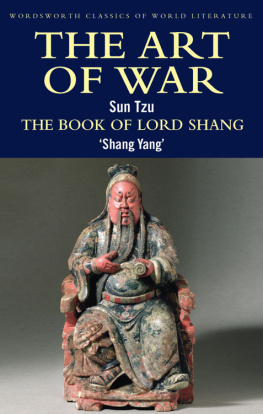
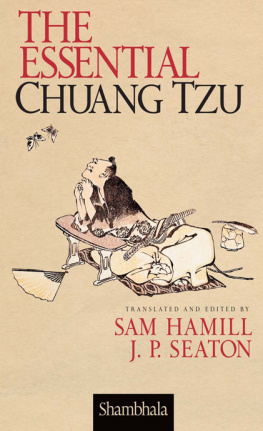
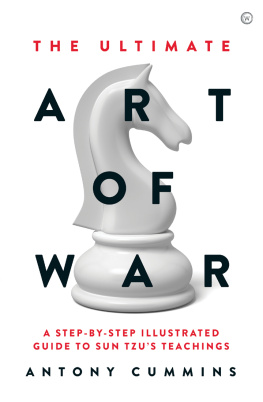
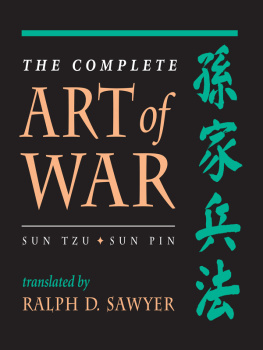
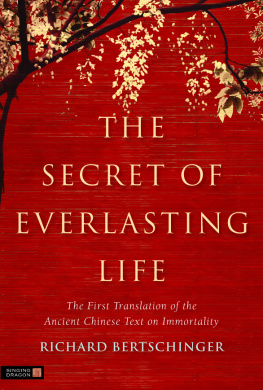
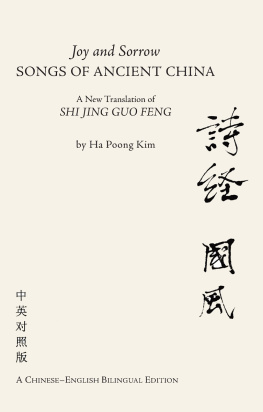
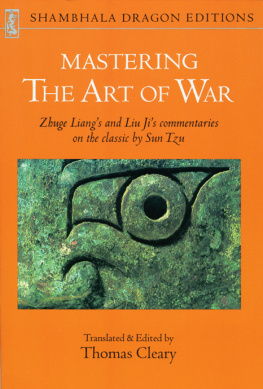
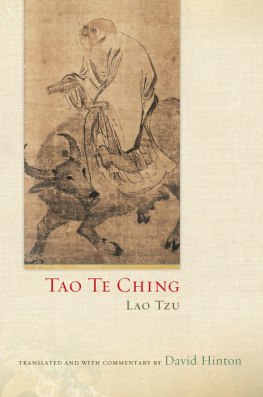



 is an interpolation and has no business here at all. If it be retained, Wang Xi must be right in saying that denotes the seven considerations" in ( 13. are the circumstances or conditions likely to bring about victory or defeat. The antecedent of the first is ; of the second, . contains the idea of comparison with the enemy," which cannot well be brought out here, but will appear in 12. Altogether, difficult though it is, the passage is not so hopelessly corrupt as to justify Capt. Calthrop in burking it entirely.
is an interpolation and has no business here at all. If it be retained, Wang Xi must be right in saying that denotes the seven considerations" in ( 13. are the circumstances or conditions likely to bring about victory or defeat. The antecedent of the first is ; of the second, . contains the idea of comparison with the enemy," which cannot well be brought out here, but will appear in 12. Altogether, difficult though it is, the passage is not so hopelessly corrupt as to justify Capt. Calthrop in burking it entirely. , and omits after . Capt. Calthrop translates: "If the ruling authority be upright, the people are united"-a very pretty sentiment, but wholly out of place in what purports to be a translation of Sun Tz.
, and omits after . Capt. Calthrop translates: "If the ruling authority be upright, the people are united"-a very pretty sentiment, but wholly out of place in what purports to be a translation of Sun Tz. , which might be freely rendered "esprit de crops and big battalions.'"
, which might be freely rendered "esprit de crops and big battalions.'" , as often in Sun Tz, is used in the sense of . It is rather remarkable that all the commentators, with the exception of Zhang Yu, refer to the enemy: "when he is in disorder, crush him." It is more natural to suppose that Sun Tz is still illustrating the uses of deception in war.
, as often in Sun Tz, is used in the sense of . It is rather remarkable that all the commentators, with the exception of Zhang Yu, refer to the enemy: "when he is in disorder, crush him." It is more natural to suppose that Sun Tz is still illustrating the uses of deception in war. weak or vulnerable spots. , according to Du You and other commentators, has reference to the keenness of the men as well as to numerical superiority. Capt. Calthrop evolves an extraordinarily far-fetched translation: "If there are defects, give an appearance of perfection, and awe the enemy. Pretend to be strong, and so cause the enemy to avoid you"!
weak or vulnerable spots. , according to Du You and other commentators, has reference to the keenness of the men as well as to numerical superiority. Capt. Calthrop evolves an extraordinarily far-fetched translation: "If there are defects, give an appearance of perfection, and awe the enemy. Pretend to be strong, and so cause the enemy to avoid you"!